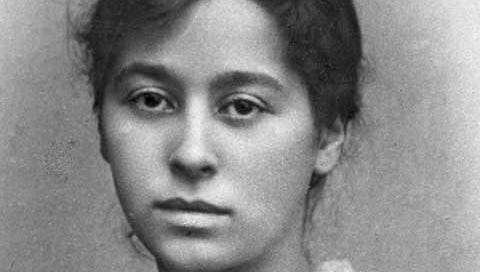It did Amy Levy no good to be recognised as one of the late 19th century’s most promising and exciting young writers. A poet and novelist, she tragically committed suicide at the age of just 27. Her name was never forgotten but for years her work rarely received the attention it deserved. Only now is she beginning to surface again, with a flurry of research into her writing, her personality and the scandal that erupted around her.
Amy Levy was born on November 10th, 1861, into a well to do, Jewish family in South London. Her father was a stockbroker and she grew up knowing very little of the poverty and misery beneath which most Jews in Victorian England lived. It was the consequence of this ignorance that would continue to haunt her memory after she died.
Even as a child, it was obvious that Amy had a literary talent. She published her first poem at the age of 13. It wasn’t a great poem but it showed her potential and she continued to publish poetry throughout her teenage years. She was sent, at the age of 14, to a private boarding school in the fashionable south coast resort of Brighton. The school was progressive and enlightened, with a young headmistress who had been one of the first women to attend Cambridge University. Amy’s friends at school included several young women who would go on to have sparkling careers: Constance Black who translated Chekhov, Dostoevsky and Tolstoy into English and her sister, Clementina, a pioneering novelist and social reformer, campaigner for women’s rights and honorary secretary of the Women's Trade Union League.
Amy won a place at Newnham Hall in Cambridge; the first Jewish woman to do so. Later to become Newnham College and part of Cambridge University, the Hall had been founded as a residential and educational establishment, giving women the opportunity to attend lectures at the all-male university. In Amy’s day, Newnham was unable to award formal degrees to women; when, in 1897, a motion was proposed to change the rules so that women could graduate officially, the male students rioted in protest.



